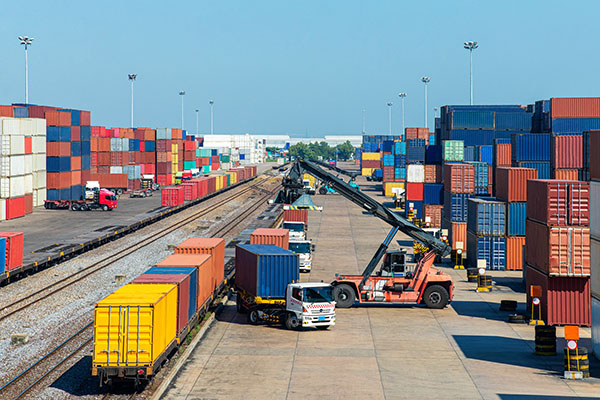Great Recession 2.0? Americans pull hundreds of billions out of banks at fastest pace in four decades
06/13/2023 / By JD Heyes

Americans are pulling hundreds of billions of dollars out of banks at the fastest pace in nearly 39 years as many economic experts are beginning to predict a repeat of the 2008 “Great Recession.”
According to an analysis of the most recent data from the Federal Deposit Insurance Corporation (FDIC), “depositors took a total of $472 billion out of their accounts in the first quarter of this year – shattering a 39 year record,” the Daily Hodl reported.
“The quarterly decline is the largest reduction reported in the QBP since data collection began in 1984. This was the fourth consecutive quarter that the industry reported lower levels of total deposits,” the FDIC report said.
According to the FDIC, the “primary driver” behind the withdrawal of deposits was the movement of uninsured deposits as individuals sought to safeguard funds exceeding the FDIC-insured limit of $250,000. Interestingly, during the same period, the amount of insured deposits held by banks actually saw an increase, as people opted to diversify their risk, the outlet reported, adding:
The mass exodus follows the failures of Signature Bank, Silicon Valley Bank and First Republic, which were triggered in large part by the Federal Reserve’s aggressive interest rate hikes.
As depositors leave the banking system, money market funds have witnessed massive weekly cash inflows.
As the first quarter came to a close, assets held by money market mutual funds surged to $5.6 trillion according to Crane data, representing a record high.
During the Great Recession of 2008-09, Americans lost homes and trillions in market value and savings. It was a severe economic downturn that started with the bursting of the US housing bubble and quickly spread to other countries.
The financial crisis was caused by a severe contraction of liquidity in global financial markets that left banks in trouble, leading to an interbank credit freeze. This impaired the ability of any bank to extend credit to businesses and consumers, forcing businesses to reduce their expenses and investments, leading to widespread job losses. As millions of people lost their homes, jobs, and savings, the poverty rate in the United States increased, and much wealth was lost.
The crisis developed gradually, with home prices starting to fall in 2006 and subprime lenders filing for bankruptcy in 2007. By August 2007, it became clear that the financial system was in trouble, as the interbank market froze and banks like Bear Stearns and Merrill Lynch faced major losses. The crisis ultimately led to the collapse of Lehman Brothers in September 2008 and the Great Recession.
The Great Recession was deep and protracted enough to become known as “the Great Recession” and was followed by what was, by some measures, the slowest economic recovery in U.S. history. The recession lasted from December 2007 to June 2009, and the economy did not return to pre-recession levels until late 2011.
When the bubble burst, the banks were left with trillions of dollars of worthless investments in subprime mortgages. Many banks, including Lehman Brothers, had been highly leveraged, meaning they had borrowed heavily to invest in these mortgages, and when the value of the mortgages plummeted, the banks were unable to meet their obligations.
The crisis had far-reaching effects on the global economy. In addition to widespread job losses and increased poverty rates, many countries experienced declines in their gross domestic product (GDP), and the eurozone debt crisis emerged as a result of the recession. The recession also had political consequences, with many people blaming policymakers for not preventing the crisis or responding adequately to it.
The crisis also led to a reevaluation of financial regulations and the role of banks in the economy. Many policymakers and experts believed that the crisis was caused by a lack of oversight and regulation of the financial sector, and reforms were implemented to prevent a similar crisis from happening again.
But, as we’ve seen recently, banks are beginning to fail again anyway despite a raft of new regulations passed in the wake of the 2008 crisis, and home values are reportedly overvalued — again.
Sources include:
Submit a correction >>
Tagged Under:
bank collapse, bank withdrawal, central bank, collapse, depositors, economic collapse, economic riot, FDIC, financial collapse, Great Recession 2.0, Housing Market, inflation, Lehman Brothers, money supply, pensions, recession, risk
This article may contain statements that reflect the opinion of the author
RECENT NEWS & ARTICLES
COPYRIGHT © 2022 FinanceRiot.com
All content posted on this site is protected under Free Speech. FinanceRiot.com is not responsible for content written by contributing authors. The information on this site is provided for educational and entertainment purposes only. It is not intended as a substitute for professional advice of any kind. FinanceRiot.com assumes no responsibility for the use or misuse of this material. All trademarks, registered trademarks and service marks mentioned on this site are the property of their respective owners.




















